News
-
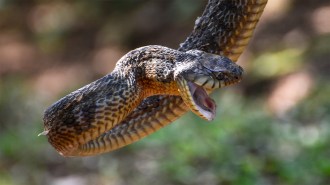 Health & Medicine
Health & MedicineA drug for heavy metal poisoning may double as a snakebite treatment
An initial clinical trial in Kenya found no safety concerns, a first step toward testing unithiol as a treatment for venomous snakebites in people.
-
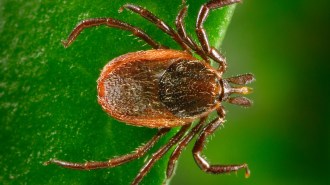 Health & Medicine
Health & MedicineThree U.S. tick species may cause a mysterious red meat allergy
Two cases of alpha-gal syndrome suggest that the lone star tick isn’t the only species in the United States capable of triggering an allergy to red meat.
By Meghan Rosen -
 Science & Society
Science & SocietyFederal cuts put help for mental health and drug addiction in peril
SAMHSA’s work is crucial to suicide and drug overdose prevention and mental health care. It may fall victim to changes to public health infrastructure.
-
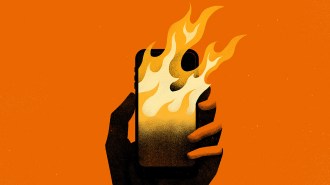 Artificial Intelligence
Artificial IntelligenceSpotting climate misinformation with AI requires expertly trained models
When classifying climate misinformation, general-purpose large language models lag behind models trained on expert-curated climate data.
By Ananya -
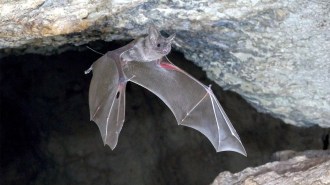 Animals
AnimalsBats wearing tiny mics reveal how the fliers avoid rush hour collisions
As thousands of bats launch nightly hunting, the cacophony of a dense crowd should stymie echolocation, a so-called “cocktail party nightmare.”
By Susan Milius -
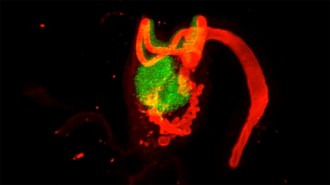 Health & Medicine
Health & MedicineAn overlooked organ may help the ovary function
No longer considered functionless, the “rediscovered” rete ovarii may be crucial for understanding “unexplainable” infertility and ovarian disorders.
-
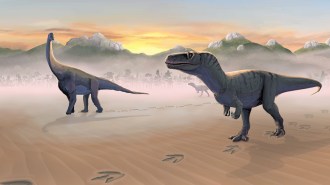 Paleontology
PaleontologyScotland’s Isle of Skye was once a dinosaur promenade
New dinosaur fossil tracks on the Isle of Skye reveal that the once-balmy environment was home to both fierce theropods and massive sauropods.
-
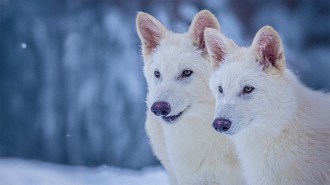 Animals
AnimalsThe story of dire wolves goes beyond de-extinction
Some question whether the pups are really dire wolves, or just genetically tweaked gray wolves. But the technology could be used to help at-risk animals.
By Meghan Rosen -
 Particle Physics
Particle PhysicsNeutrinos’ maximum possible mass shrinks further
The KATRIN experiment in Germany nearly halved the maximum possible mass for neutrinos, setting it at 0.45 electron volts.
-
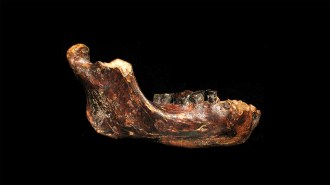 Anthropology
AnthropologyDenisovans inhabited Taiwan, new fossil evidence suggests
An expanding geographic range for these close Neandertal relatives leaves Denisovans' evolutionary status uncertain.
By Bruce Bower -
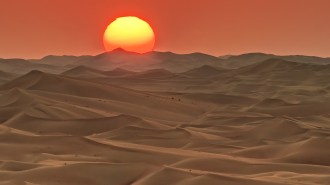 Climate
ClimateA lush, green Arabian Desert may have once linked Africa and Asia
Mineral formations in caves reveal recurring periods of humidity in the Arabian Desert over the last 8 million years.
-
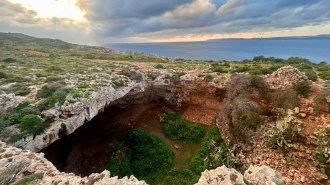 Archaeology
ArchaeologyStone Age hunter-gatherers may have been surprisingly skilled seafarers
New archaeological finds in Malta add to an emerging theory that early Stone Age humans cruised the open seas.